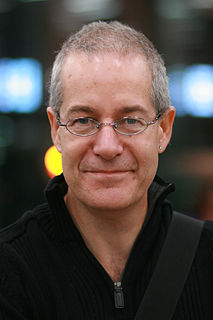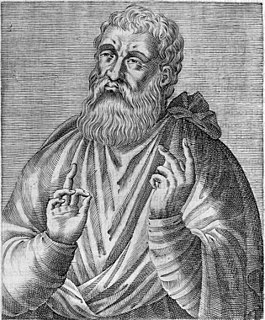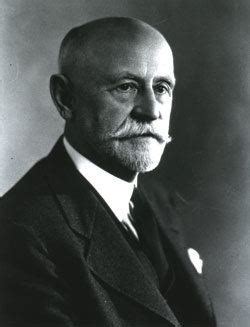A Quote by Massimo Pigliucci
If you are a Christian, you can still practice Stoicism and think of the Logos as the Word of God. If you are a secular person, an agnostic or an atheist, you may treat the Logos as "Einstein's god," that is the factual recognition that the cosmos is ordered according to rational principles, without which science itself wouldn't be possible.
Related Quotes
An atheist, like a Christian, holds that we can know whether or not there is a God. The Christian holds that we can know there is a God; the atheist, that we can know there is not. The Agnostic suspends judgment, saying that there are not sufficient grounds either for affirmation or for denial. At the same time, an Agnostic may hold that the existence of God, though not impossible, is very improbable; he may even hold it so improbable that it is not worth considering in practice. In that case, he is not far removed from atheism.
If some should accuse us as if we held that people born before the time of Christ were not accountable to God for their actions, we shall anticipate and answer such a difficulty. We have been taught that Christ is the first-begotten of God, and we have declared him to be the Logos of which all mankind partakes. Those, therefore, who lived according to reason (logos) were really Christians, even though they were thought to be atheists, such as, among the Greeks, Socrates, Heraclitus and others like them.
God's Providence controls the universe. It is present everywhere. Providence is the sovereign Logos of God, imprinting form on the unformed materiality of the world, making and fashioning all things. Matter could not have acquired an articulated structure were it not for the directing power of the Logos Who is the Image, Intellect, Wisdom, and Providence of God.
If you expound the teaching of the Logos from the standpoint of the moral life, using materialistic words and examples which correspond to the capacity of your hearers, you make the Logos flesh. Conversely, if you elucidate mystical theology by means of the higher forms of contemplation you make the Logos spirit.
I am an atheist. There, I said it. Are you happy, all you atheists out there who have remonstrated with me for adopting the agnostic moniker? If "atheist" means someone who does not believe in God, then an atheist is what I am. But I detest all such labels. Call me what you like - humanist, secular humanist, agnostic, nonbeliever, nontheist, freethinker, heretic, or even bright. I prefer skeptic.
Of the Logos which is as I describe it men always prove to be uncomprehending, both before they have heard it and when once they have heard it. For although all things happen according to this Logos, they [men] are like people of no experience, even when they experience such words and deeds as I explain, when I distinguish each thing according to its constitution and declare how it is; but the rest of men fail to notice what they do after they wake up just as they forget what they do when asleep.
The atheist does not say 'there is no God,' but he says 'I know not what you mean by God; I am without idea of God'; the word 'God' is to me a sound conveying no clear or distinct affirmation. ... The Bible God I deny; the Christian God I disbelieve in; but I am not rash enough to say there is no God as long as you tell me you are unprepared to define God to me.
I feel most spiritual when I'm out in the woods. I feel part of nature. Or looking up at the stars. [I used to say] I was an atheist. Now I say, it's all according to your definition of God. According to my definition of God, I'm not an atheist. Because I think God is everything. Whenever I open my eyes I'm looking at God.
Holly is living proof that C.S. Lewis was right when he said that a good atheist can't be too careful of her reading. A lover of the word, she discovered through it the love of the Logos, whose beauty fills all of creation. She found the courage to follow the spilled drops of human imagination back to the One who ‘reflects the glory of God and bears the very stamp of his nature, upholding the universe by his word of power' (Heb 1:3).
Because God is perfect, his handiwork functions in accord with immutable principles. By the full use of our God-given powers of reason and observation, it ought to be possible to discover these principles.
These were the crucial ideas that explain why science arose in Christian Europe and no where else.
Ordered by subject, by importance, ordered according to whether the book was penned by God or by one of God's creatures, ordered alphabetically or by numbers or by the language in which the text is written, every library translates the chaos of discovery and creation into a structured system of hierarchies or a rampage of free associations.


































